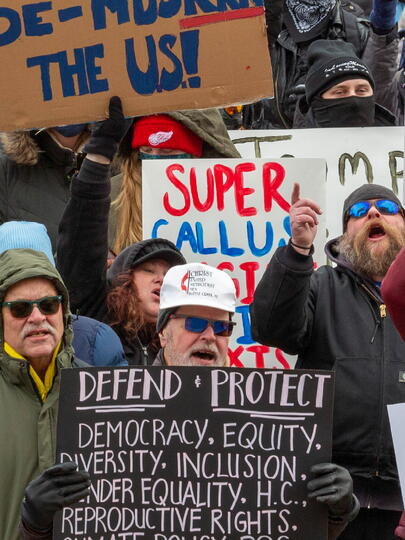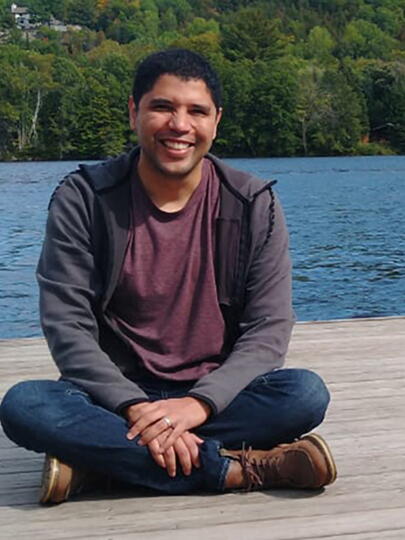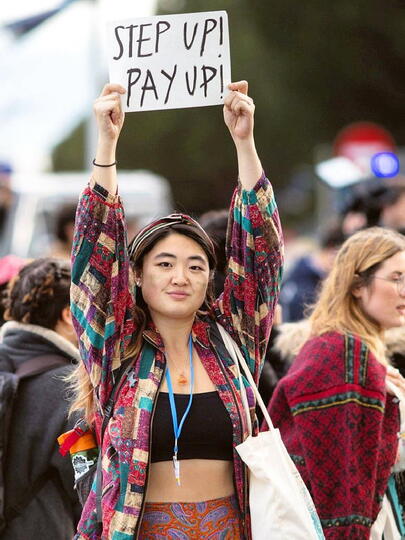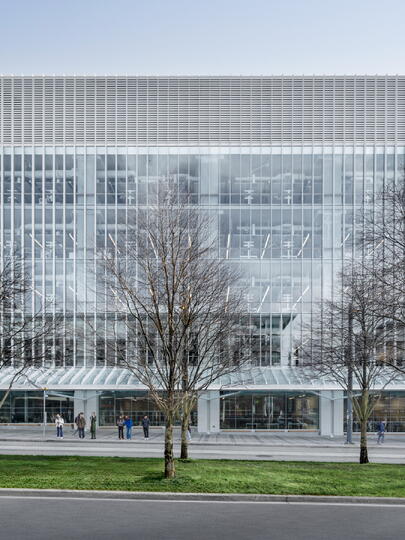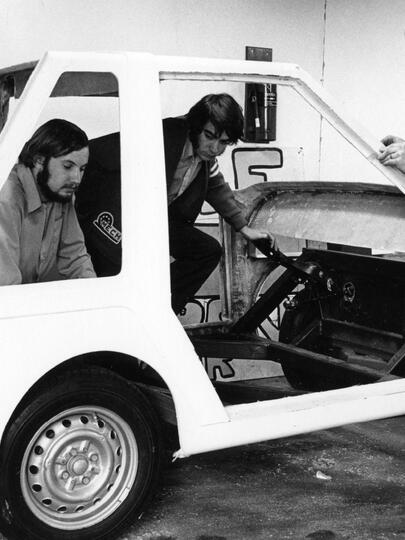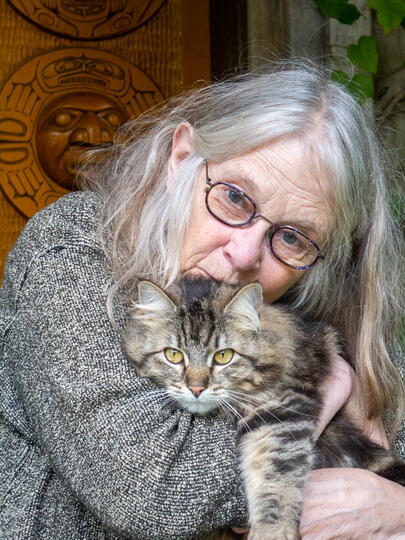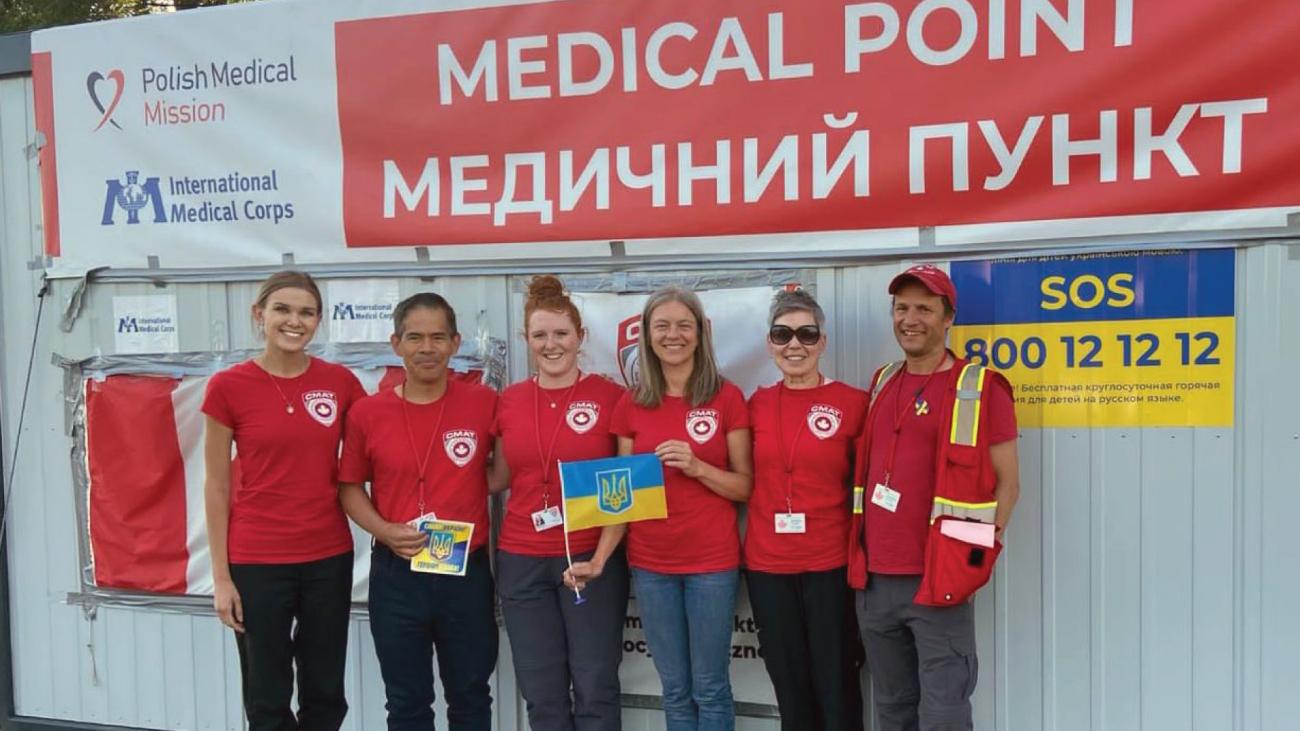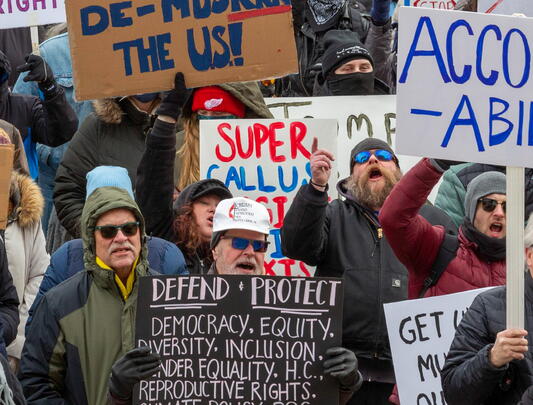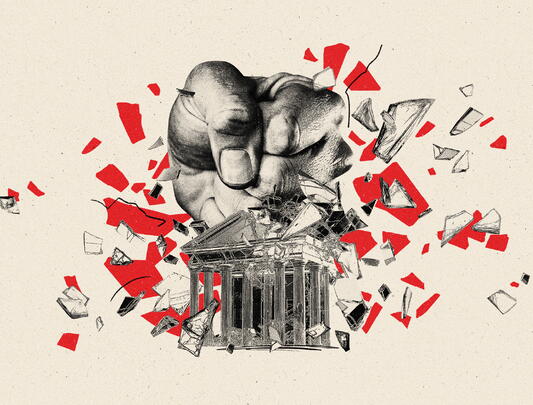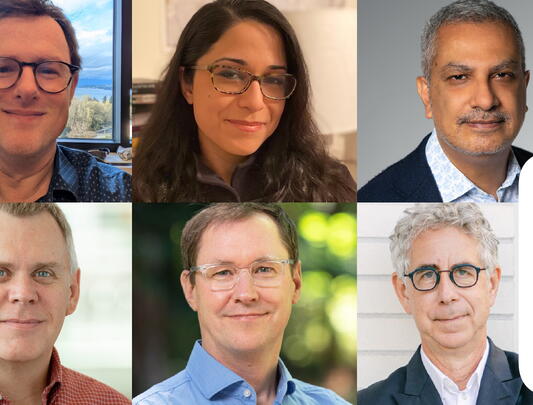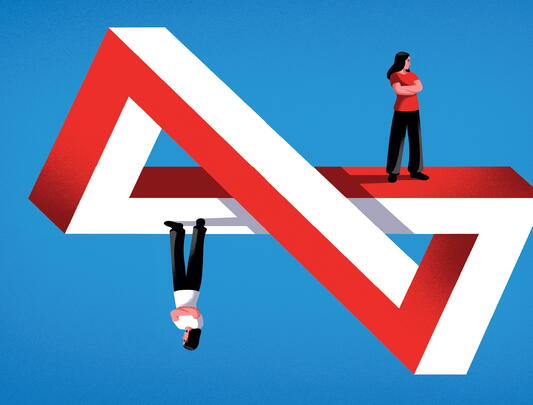How two UBC health-care workers are lending their support to Ukraine
There’s a common phrase that Ukrainians say when they bid each other farewell: “Until our victory.”
For UBC midwifery professor Dr. Luba Butska, the phrase signifies the palpable strength of the Ukrainian people who have endured ongoing devastation for more than a year since Russia’s full-scale invasion of Ukraine in February 2022, yet are compelled to keep fighting for their country.
“You can really feel it on the ground there,” she says. “Ukrainians didn’t choose this war but they are not the type of people to just give up without a fight. They keep going because they believe that there will be a moment when they will be victorious.”
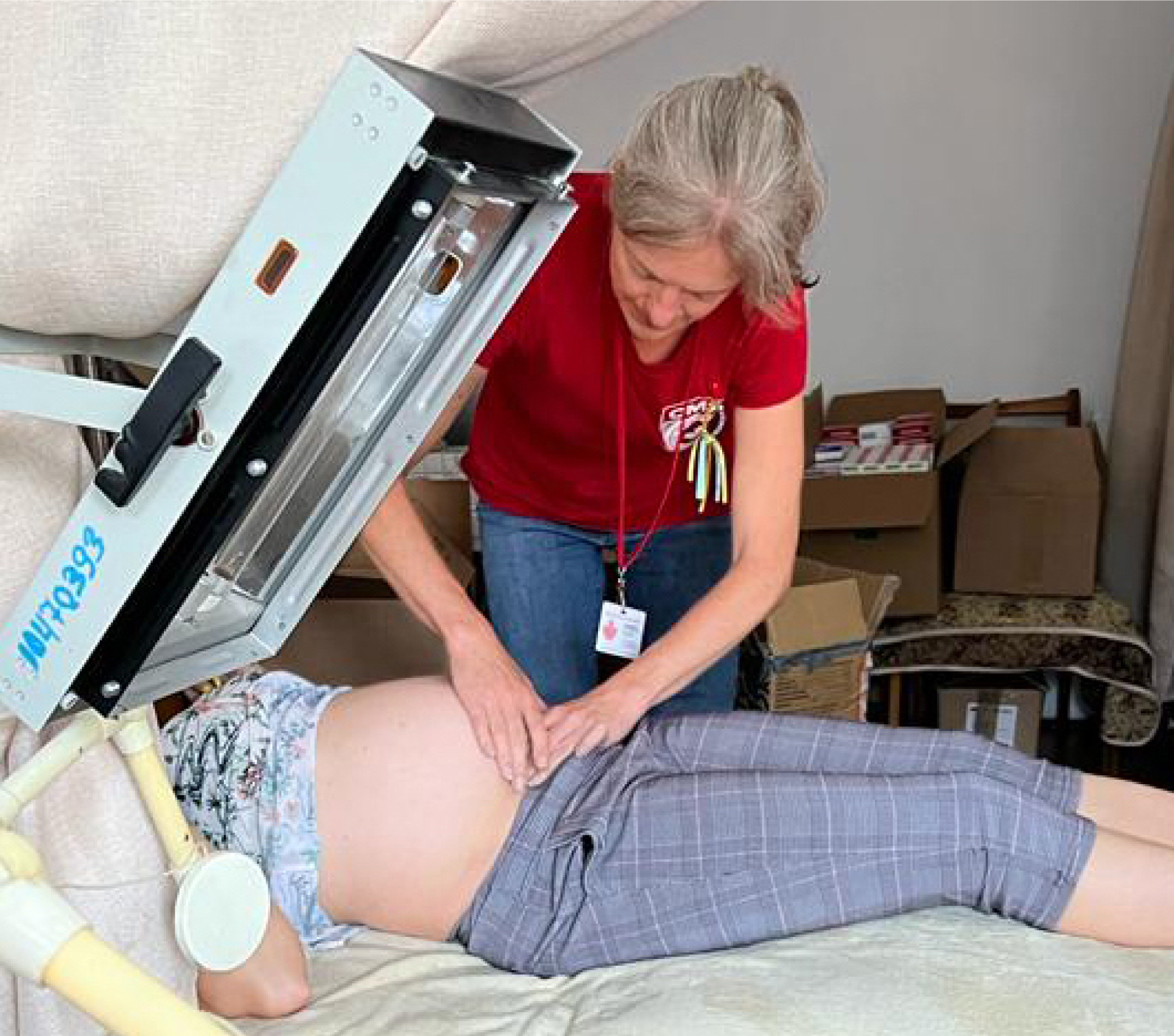
That resilience is what inspired Dr. Butska to lend her support to Ukraine after the war broke out, and to continue to volunteering on the ground despite the safety risks. Born in Canada to a Ukrainian mother, Dr. Butska speaks fluent Ukrainian. As an assistant professor in the midwifery program in UBC’s Faculty of Medicine, she knew her medical expertise and language fluency might prove useful to the war effort.
When the opportunity arose to volunteer in Ukraine, she and her husband Drew Kostyniuk — a nurse practitioner who is also Ukrainian-Canadian — jumped at the chance. In May 2022, they were deployed with the Canadian Medical Assistance Teams (CMAT) — a disaster-relief organization made up of health professionals who volunteer to assist victims of natural and human-made disasters around the world.
They spent two weeks travelling with CMAT to provide medical care in northwestern Ukraine, where thousands of displaced people had arrived in the weeks following the Russian invasion, some attempting to flee to nearby Poland.
“When the Russian invasion started, I was crying all the time, and my Ukrainian mom would say, ‘Stop with your crying — tears never bring any freedom,’ ” Dr. Butska recalls. “That’s a very Ukrainian thing to say — not to say that it’s not heartbreaking what is happening, but the Ukrainians are just so strong. That really inspired me to see if I could help.”
During times of crisis, unexpected connections can emerge. By chance, Dr. Butska found herself volunteering alongside a fellow UBC community member, Dr. Hubert Chao (BSc'90, MSc'98). Although they had never met before, Dr. Chao, a primary care physician at UBC’s student health clinic, also happened to be deployed on the same CMAT mission.
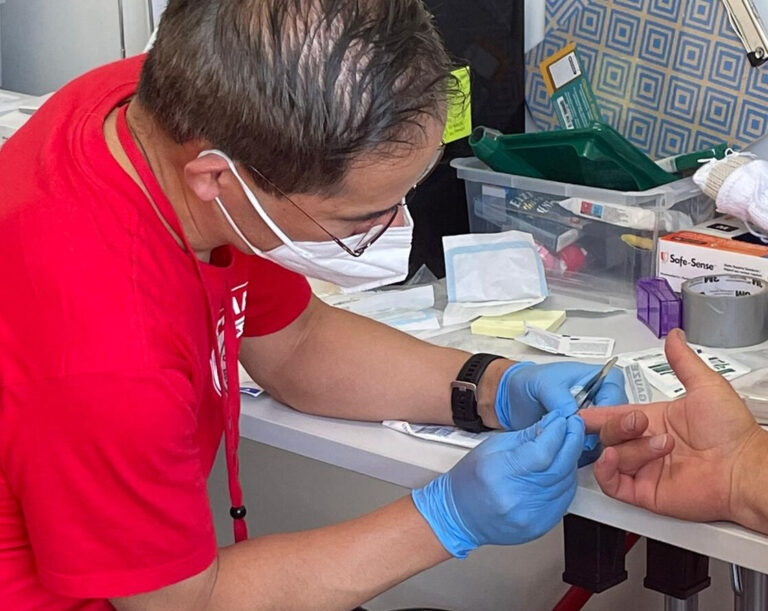
While the team did provide some trauma care to soldiers and injured civilians, most of their work was focused on primary care, such as prescriptions for medications or blood pressure checks.
“Even just the simplest things, such as taking blood pressure, they really appreciated,” Dr. Chao says. “It was really remarkable that they could foster that type of gratitude when they have had their lives destroyed.”
Dr. Butska still becomes emotional when she recalls the 17-year-old girl who came to see them one day with an injury caused by a dog leash that had wrapped around her leg. The girl had travelled to them from a town that had been destroyed by air strikes. The interaction was especially difficult, Dr. Butska says, as it reminded her of her own daughter, Lada, who is about the same age.
“You don’t want to re-traumatize people by asking about their experience, but we asked her if she was OK, and she took the opportunity to tell us what she had lost,” she says. “She showed us a picture of her beautiful graduation dress, a milestone she never got to celebrate. The saddest part was that she showed us a video of the community centre where she would go to dance classes. It looked just like the community centres where my daughter takes dance classes, and the whole thing was gone, destroyed by a Russian missile.”
For safety reasons, the CMAT crew stayed in Poland every night and would cross the border to Ukraine every day.
Dr. Chao recalls the fear whenever they would receive word of airstrike warnings in the region while they were driving. One day, they received a warning while they were on their way to pick up their translator in the city of Kovel. Fortunately, the team was able to reach the translator, and the airstrike warning ended without any bombs being dropped.
“There was certainly tension that we were driving possibly towards danger,” he recalls. “As the medical team lead, I had to try to make the best decisions I could that would not put our safety and lives at risk. In that moment, we felt it best to continue in the vehicle to pick up our translator.”
Despite the risks, both Drs. Butska and Chao plan on continuing to help Ukraine.
Dr. Chao — who has previously volunteered in Tibet as well as Nepal following the devastating earthquake in 2015 — hopes to continue providing humanitarian assistance to people in crisis situations in Ukraine and around the world.
Meanwhile, Dr. Butska returned to Kyiv for two months this summer with her husband and daughter. The family volunteered with Ukrainian Patriot, an organization working to deliver aid to those on the front lines as well as civilians caught in the crossfire. Dr. Butska helped with logistics, sourcing, and delivering medical supplies to hospitals all over the country.
While it was less dangerous than working directly on the front lines, it wasn’t without risk. “Just last week, one of the medical centers that Ukrainian Patriot were delivering supplies to while we were there was hit and badly damaged by a Russian missile,” says Dr. Butska.
Next year, she plans to return to Ukraine to do research on the country’s health-care system to try to understand how it has remained resilient in the face of the war. As a midwifery professor, she hopes to focus on midwifery care and to bring the lessons from her research back to her classes at UBC.
“I am so thankful that my mom taught me Ukrainian so I can sit down with people and hear their stories of resistance and resilience,” she says. “There are so many lessons that we can all learn from Ukraine. I am grateful for the opportunity to be able to share that knowledge.”
